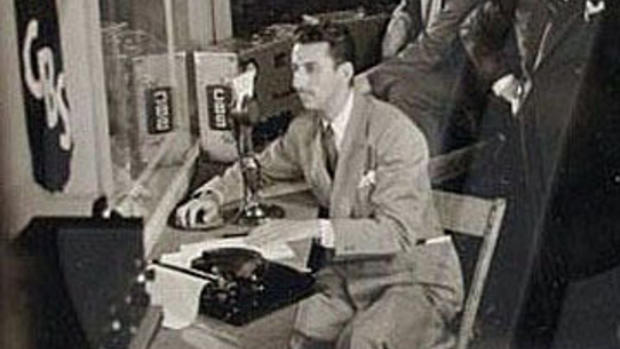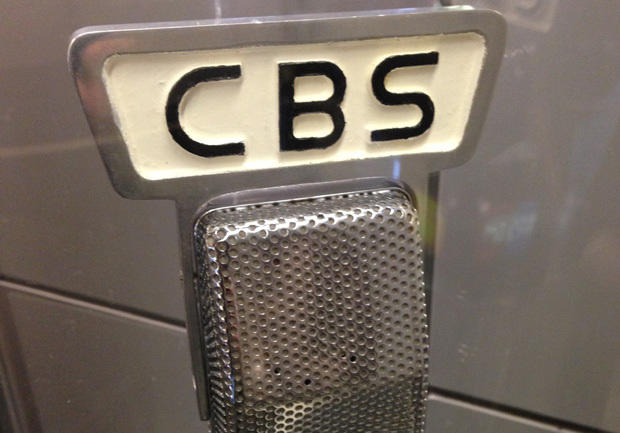Reporting on history: CBS World News Roundup marks 75 years
On the evening of March 13, 1938, legendary CBS radio newsman Robert Trout reported from New York that the Nazis were "driving with all their might to bring Austria under complete Nazi domination."
Moments later, in a watershed broadcast moment, Trout stopped talking so listeners could hear the live dispatches of correspondents throughout Europe. Reporting from Vienna was a CBS executive making his on-air debut: Edward R. Murrow.
"Everything is quiet in Vienna tonight," Murrow reported. "There is a certain air of expectancy about the city, everyone waiting and wondering where and at what time Herr Hitler will arrive."
Seventy-five years after that ground-breaking broadcast, CBS World News Roundup remains on the air waves, making it America's longest-running news program on radio or TV. In those early days, millions of Americans listened to Murrow's radio dispatches from London, including a report on the Allies' D-Day invasion of Normandy. William L. Shirer and Howard K. Smith were among other war-time correspondents who rose to prominence through newscast.
"The coverage of the Second World War was absolutely riveting," said Charlie Kaye, executive producer for radio at CBS News. "The broadcast originated from every major event you can imagine - from changes in popes to shuttle launches to inaugurations - you name it."
World News Roundup remained an indispensible source of reporting during the Vietnam War. While television still had to wait for 16 mm film to be processed and flown back to New York for broadcast, World News Roundup was able to go live every morning from the war zone.
The broadcast not only reached millions of listeners, it became an unlikely means of communication for the highest levels of government. John Foster Dulles, the secretary of state under President Eisenhower, listened to the newscast every day while vacationing on his telephone-less summer home on Duck Island in Lake Ontario. When Washington needed to reach him, the State Department would alert World News Roundup, and the anchor would include a coded message to Dulles in the on-air broadcast: "This news will be of particular interest to Secretary of State Dulles." That would signal Dulles to return to the mainland to call D.C.
No such telephone barriers exist today, and World News Roundup has evolved with technological breakthroughs. Correspondents who used to rely on short-wave radio and unreliable phone connections can now turn around high-quality reports in seconds, routinely incorporating natural sound and other elements of modern journalism.
"Almost everything is studio quality now, you rarely hear telephone audio quality," Kaye said. "Anyone who has a Skype connection and an iPhone can file studio quality audio."
The technology may have evolved but the news program's pioneering early days have a permanent spot at CBS News. In the lobby of the CBS Broadcast Center in New York is a display case holding a vintage "ribbon" CBS radio microphone used by the likes of Murrow and Trout.
World News Roundup, which has won the Radio Television Digital News Association's Edward R. Murrow Award for Best Newscast in two of the last three years, was inducted into the National Radio Hall of Fame in 1995.

